As I write this, I’ve read 158 books in 2014, which is probably a record for me, and certainly more than I intended. I’ve already talked on the blog about taking stock of my approach to reading; I have been thinking about that further, and you’ll see some changes fairly soon. But let’s wrap up this year first.
2014 was going to be the year when I read more translations, which I did; though I didn’t manage to stick to the elaborate plan I had. I may as well report back on the goals I set myself. The idea was that two-thirds of my reading would be ‘non Anglo-American’ (including Anglophone writing from outside the UK and US). I achieved 43% on that score, with 35% of my reading being in translation. I also aimed for gender parity in my reading this year, but didn’t quite get there: not counting anthologies, 41% of the books I read were by women.
Already, though, I can feel the limitations of this sort of number crunching. Don’t get me wrong: as a reader, it’s valuable to me to know what I read (and all too easy not to pay attention). But the essence of reading is individual responses to individual books.
On that note, here’s my list of favourites for the year. All books I’ve read for the first time this year are eligible, regardless of when they were first published. I traditionally limit myself to twelve, so naturally some very good books have been left off. I compile this mostly by instinct, so the countdown is just for fun – all these books are warmly recommended.
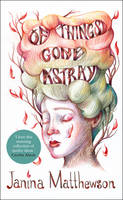 12. Janina Matthewson, Of Things Gone Astray (2014)
12. Janina Matthewson, Of Things Gone Astray (2014)
A novel of fantastical losses: lost buildings, lost ideas, lost selves. Matthewson achieves a careful balancing act: the novel is dream-like without being too whimsical; and fantasy reflects reality without being reducible to simple metaphors. Of Things Gone Astray creates a world all of its own, one that takes time to shake off.
11. Yoko Ogawa, The Housekeeper and the Professor (2003)
Translated from the Japanese by Stephen Snyder (2008)
I read three of Ogawa’s books this year; the one that makes my list is a departure from the others, but its measured wistfulness really worked for me. It’s the story of a woman who goes to work for an elderly professor, and how they bond through mathematics even though he has little short-term memory. Ogawa contrasts the transient human world with the eternal web of numbers.
10. Helen Oyeyemi, Boy, Snow, Bird (2014)
Oyeyemi is always a skilled sculptor of the fantastic; this may be her subtlest work to date. She draws on the iconography of Snow White to tell the story of a girl named Boy, and a black family passing as white, in 1950s America. The use of the fairytale changes the rhythms of Oyeyemi’s novel, highlighting the complexities of the real world.
9. Ray Robinson, Jawbone Lake (2014)
This is a novel of disruption: a Land Rover disturbing the tranquillity of an English lake; a father’s abrupt suicide shattering his family’s world; the language of a gangster thriller intruding on realist prose. Jawbone Lake is a study of grief and a thriller that treats ‘thrills’ as strange and unknowable. After Forgetting Zoë, it’s also a fine demonstration of Robinson’s versatility as a writer.

8. Angharad Price, The Life of Rebecca Jones (2002)
Translated from the Welsh by Lloyd Jones (2010)
A novel about Price’s great-aunt, and the valley in which she spends her long life. This is a meditative study of the passing of time and a life that’s ultimately well lived. Though Rebecca’s life may be limited geographically, it’s shown to be intellectually rich – which is just as valid to her as any other sort of experience.
7. Nina Allan, The Race (2014)
Allan has become one of my favourite science fiction writers over recent years, and this – her first novel – is the single best piece of her work that I’ve read. The Race begins as a tale of genetically enhanced greyhounds, then mutates into a broader novel of thwarted lives. It exhibits Allan’s keen eye for landscape, and is finely calibrated enough to know the weight of all its fantastic words.
6. Naomi Wood, Mrs. Hemingway (2014)
Two novels into her career, Wood is developing an intriguingly stylised approach to historical fiction. The Godless Boys placed her characters in the distorting world of an artificial alternate history; this time the distorting factor is marriage to such a larger-than-life figure as Ernest Hemingway. Wood creates an intricately patterned dance from the chaos of her subjects’ lives.
5. Joanna Kavenna, Come to the Edge (2012)
Kavenna gives free rein to characters without inhibitions in this dark comedy of rural apocalypse which begins when a woman decides to ‘resettle’ some evicted locals in the often-unoccupied second home of a banker. Come to the Edge has a relentless, driving energy, and is very much concerned with the sound of its prose.
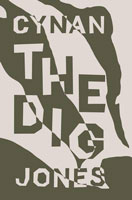 4. Cynan Jones, The Dig (2014)
4. Cynan Jones, The Dig (2014)
Jones’s novels tend towards the short and stark; this tale of a grieving farmer and a badger-baiter is no exception. It’s an unflinching and very physical tale, whose imagery continues to haunt me.
3. Agota Kristof, The Notebook (1986)
Translated from the French by Alan Sheridan (1989)
There are some expressions that it’s easy to use without thinking when describing books – such as ‘spare prose’. Well, the prose of The Notebook is so spare that it hurts. In what may be wartime Hungary, twin boys describe their project to harden themselves physically and emotionally, and the cruelties they inflict on themselves and others in the process. Their account becomes a timeless nightmare, and I’ll be looking out for Kristof’s two sequels next year, to find out how it continues.
2. Eimear McBride, A Girl is a Half-formed Thing (2013)
I was a latecomer to reading McBride, which was my loss (or was it just the right time?): I found her novel every bit as powerful as it promised to be. This is a book whose form and style are integral to its project (a quality I’m coming to value more and more in fiction): its shifts in language are part of what the book means. As a character study, t’s remorseless – and all the better for it.

1. Emma Healey, Elizabeth is Missing (2014)
To say that Healey’s debut works is both a promise and a warning. Its protagonist has dementia, and searches for her friend in a constantly renewing present; while a thread set seventy years earlier fills the gaps in a picture that only the reader can see. Elizabeth is Missing inspired a rawer, deeper reaction in me than any other book I read all year; it’s a reaction that seemed to come out of nowhere, and I find that fascinating to contemplate. This is actually something I’d like to explore on here next year; but more about that later…
Want to know what I liked most in previous years? Take a look at my other ‘favourites’ lists: 2013; 2012; 2011; 2010; and 2009.
Like this:
Like Loading...
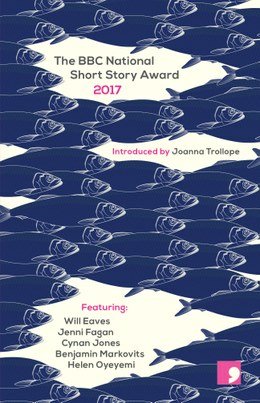




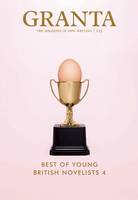
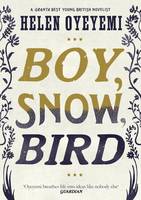
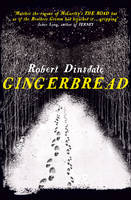
 Suzi Feay’s interview with Helen Oyeyemi at the Southbank Centre last night provided a good example of how hearing an author speak about her work can cast new light on a book. After an opening section in which Oyeyemi discussed her love of fairytales as a child, and how she first began writing (crossing out the parts of Little Women that she didn’t like, and writing in her own version—and in a library copy), she read the tale of ‘Mr Fox’ (the English version of Bluebeard), as collected by Joseph Jacobs in the 19th century; followed by the opening pages of her novel Mr Fox, which draws on different versions of the Bluebeard story. Even though I’d already read that book, hearing the author reading aloud from it was almost like encountering it for the first time again.
Suzi Feay’s interview with Helen Oyeyemi at the Southbank Centre last night provided a good example of how hearing an author speak about her work can cast new light on a book. After an opening section in which Oyeyemi discussed her love of fairytales as a child, and how she first began writing (crossing out the parts of Little Women that she didn’t like, and writing in her own version—and in a library copy), she read the tale of ‘Mr Fox’ (the English version of Bluebeard), as collected by Joseph Jacobs in the 19th century; followed by the opening pages of her novel Mr Fox, which draws on different versions of the Bluebeard story. Even though I’d already read that book, hearing the author reading aloud from it was almost like encountering it for the first time again.
Recent Comments